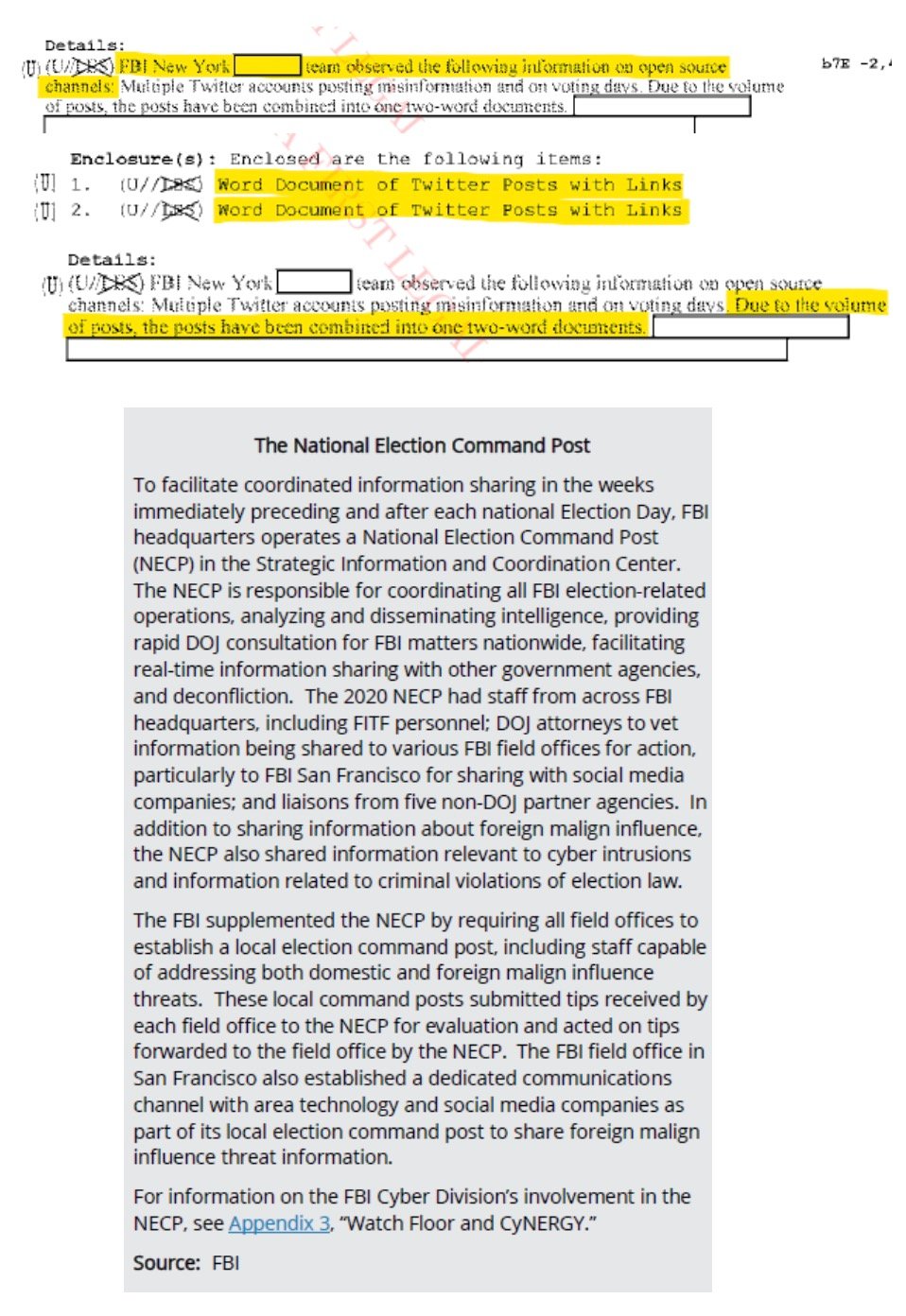America First Legal (AFL) has disclosed documents obtained through a lawsuit against the FBI and the Department of Justice (DOJ), accusing them of concealing federal records that detail government-sponsored censorship by the Biden-Harris administration before the 2022 midterm elections.
The documents revealed that the FBI’s National Election Command Post (NECP) had compiled lists of social media accounts posting what they considered “misinformation,” extending from New York to San Francisco. This included the Right Side Broadcasting Network, cited by Matt Taibbi as targeted for “additional action” by the FBI.

These lists were so extensive that they were compiled into Word documents “due to the volume of posts.” NECP, operating from the FBI Headquarters and aided by DOJ attorneys and liaisons from five non-DOJ agencies, was responsible for vetting the information and directing actions across various field offices. They focused not only on foreign threats but also on cyber intrusions and potential criminal violations linked to election law.
Domestically, accounts like “@RSBNetwork” were flagged for issues related to election law violations, seemingly unconnected to foreign influence or cyber threats. NECP specifically instructed the San Francisco field office to send “preservation letters” to maintain relevant user information until legal actions could be formally initiated.
The Inspector General’s report outlines the legal procedures the FBI might use to compel evidence production from third parties. These range from grand jury subpoenas for current subscriber information, including personal details and payment methods, to district court orders for historical data under the Electronic Communications Privacy Act. In more severe cases, the FBI might request a search warrant for detailed content or ongoing investigation data.
This pattern of surveillance and legal pressure reflects a broader governmental approach that views alleged “misinformation” as a law enforcement issue. This stance has led to significant concerns about free speech, especially given recent cases where individuals faced prosecution for online activities deemed misleading by authorities.